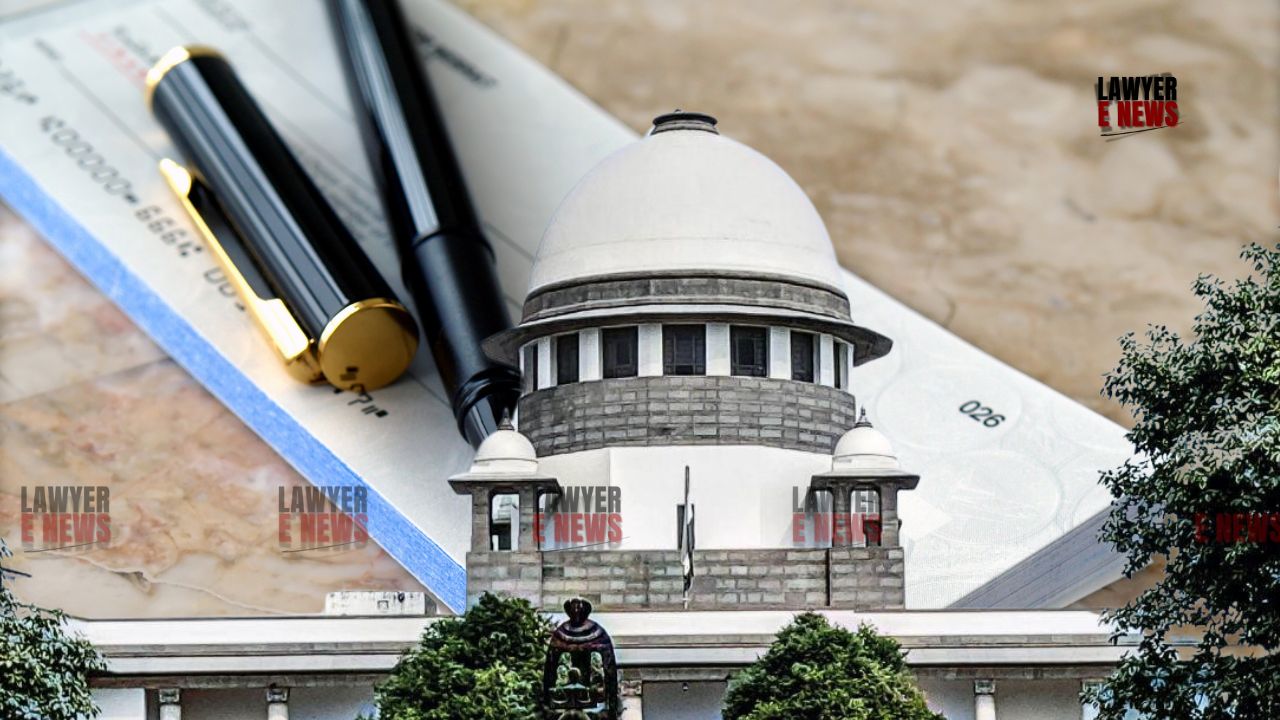-
by Admin
15 February 2026 2:36 AM



Supreme Court of India upheld the acquittal of an accused director in a cheque dishonour case, emphasizing the strict statutory requirements of Section 138 of the Negotiable Instruments Act, 1881. The Court ruled that the liability under Section 138 is limited to the drawer of the cheque and does not extend to the authorized signatory unless the company, as the principal offender, is prosecuted.
The dispute arose when the complainant, Bijoy Kumar Moni, filed a complaint under Section 138 of the NI Act against Paresh Manna, alleging that Manna borrowed ₹7,00,000 and issued a cheque for ₹8,45,000 as repayment. However, the cheque, drawn on the account of Shilabati Hospital Pvt. Ltd., was dishonoured for insufficient funds.
The complainant initiated criminal proceedings solely against Manna, who had signed the cheque in his capacity as the director of the company.
Trial Court convicted Manna under Section 138, sentencing him to one year of imprisonment and ordering compensation of ₹10,00,000.
Sessions Court dismissed the appeal and upheld the conviction.
High Court quashed the conviction, holding that Manna could not be prosecuted in his personal capacity since the cheque was drawn on the company’s account, and the company was not made an accused.
The complainant challenged the High Court's judgment before the Supreme Court.
Scope of Section 138 NI Act
The Court emphasized that Section 138 NI Act criminalizes dishonour of a cheque only if it is drawn on an account maintained by the drawer. The Court clarified:
Since the cheque was issued on the company's account, the company was the drawer, not the director.
The liability under Section 138 does not extend to the signatory unless the statutory conditions of Section 141—pertaining to vicarious liability in corporate offences—are fulfilled.
Vicarious Liability Under Section 141
The Court reiterated that vicarious liability of directors or signatories arises only if the company is prosecuted as the principal offender. It observed:
"The company, being a juristic person, is the principal offender under Section 138. Directors and authorized signatories can be held liable only if the company is made an accused."
Prosecution under Section 138 is unsustainable without arraigning the company, as held in Aneeta Hada v. Godfather Travels & Tours (2012) and Himanshu v. B. Shivamurthy (2019).
Doctrine of Strict Interpretation
The Court stressed that penal statutes like the NI Act must be interpreted strictly, and extending liability to signatories without meeting statutory conditions would lead to injustice.
The judgment rejected the argument that Manna could be treated as the drawer in his personal capacity simply because he signed the cheque. It stated:
"An authorized signatory acts on behalf of the company but does not maintain the account. The language of Section 138 is clear—it is the account holder who is liable."
The Supreme Court dismissed the appeal, affirming the High Court's acquittal of Manna. However, the Court granted the complainant the liberty to file an FIR for cheating under Section 420 of the IPC, given the accused's conduct in borrowing money and issuing a cheque that was dishonoured.
This judgment reinforces the principle that liability under Section 138 NI Act is confined to the drawer of the cheque and cannot be extended to signatories or directors without fulfilling the statutory requirements under Section 141. It also highlights the importance of proper compliance in cheque dishonour cases involving corporate entities.
Date of decision : December 19, 2024
